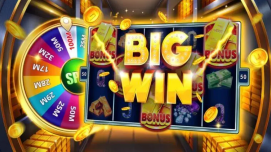Wuhan to hos | teen patti me blind side show kya hota hai | Updated: 2024-12-01 19:43:10

# The Power of Lucky Charms: Unraveling Their Significance
In a world replete with uncertainty and unpredictability, many individuals turn to the concept of lucky charms as a source of comfort and hope. These small tokens often embody our desire for good fortune, providing a tangible reminder that luck can be on our side. In this article, we will explore the significance of lucky charms, their cultural variations, and how they continue to resonate in modern life.
## 1. What Are Lucky Charms?
Lucky charms can take various forms, from simple objects like stones and coins to more intricate items like jewelry and amulets. Many cultures have their own interpretations and uses for these charms, yet they all share a common theme—symbols believed to bring luck and ward off negative influences.
### 1.1 Historical Context
Throughout history, lucky charms have transcended borders and cultures. Ancient Egyptians placed faith in scarab beetles, while the Chinese have a long-standing tradition of using jade for its protective and prosperous properties.
### 1.2 Modern Interpretations
In contemporary society, lucky charms often manifest as sports memorabilia, rabbit’s feet, or even personal items linked to significant life events. Whether bought or inherited, they serve both a physical and psychological purpose.
## 2. The Psychological Aspect of Lucky Charms
The belief in lucky charms doesn't just stem from cultural heritage; there’s also scientific intrigue behind their power.
### 2.1 The Placebo Effect
The placebo effect plays a significant role in why lucky charms seem effective for many people. When individuals genuinely believe that a charm will bring them good luck, their mindset can lead to positive outcomes.
### 2.2 Enhancing Confidence
Carrying or wearing a lucky charm can help boost confidence levels. It serves as a reminder that one has agency over their fate, enabling them to tackle challenges head-on, bolstered by a sense of security.
## 3. Notable Examples of Lucky Charms
Various cultures showcase unique symbols that stand out as representations of luck.
### 3.1 Four-Leaf Clover
Widely regarded as the ultimate symbol of luck, the four-leaf clover is associated with good fortune and prosperity. Each leaf is said to represent something significant: faith, hope, love, and luck.
### 3.2 Horseshoe
Horseshoes are another prominent lucky charm, often hung above doorways to bring good luck and protection to the household. Their crescent shape is thought to ward off evil spirits.
### 3.3 Dreamcatcher
Originating from Native American culture, dreamcatchers are believed to filter out negative dreams, allowing only positive energies to reach the person sleeping beneath them. They symbolize protection and harmony, serving as both a charm and an art form.
## 4. Using Lucky Charms in Daily Life
Incorporating lucky charms into daily routines can add a layer of positivity and intention.
### 4.1 Personalization
Choose a charm that resonates with you personally. It could be something tied to a cherished memory, or it may simply invoke a feeling of happiness when seen or touched.
### 4.2 Rituals and Mindfulness
Establish rituals around your lucky charm. This could involve carrying it during important events, like job interviews or exams, or incorporating it into meditation practices to attract positive energy.
## Conclusion
Lucky charms serve as a fascinating blend of culture, psychology, and personal belief. Whether you’re a staunch skeptic or a true believer, these small tokens carry emotional weight and can foster resilience in the face of life's uncertainties. By understanding their significance, we can appreciate the enduring power these objects hold in our lives.
---
**Word count: 514**



